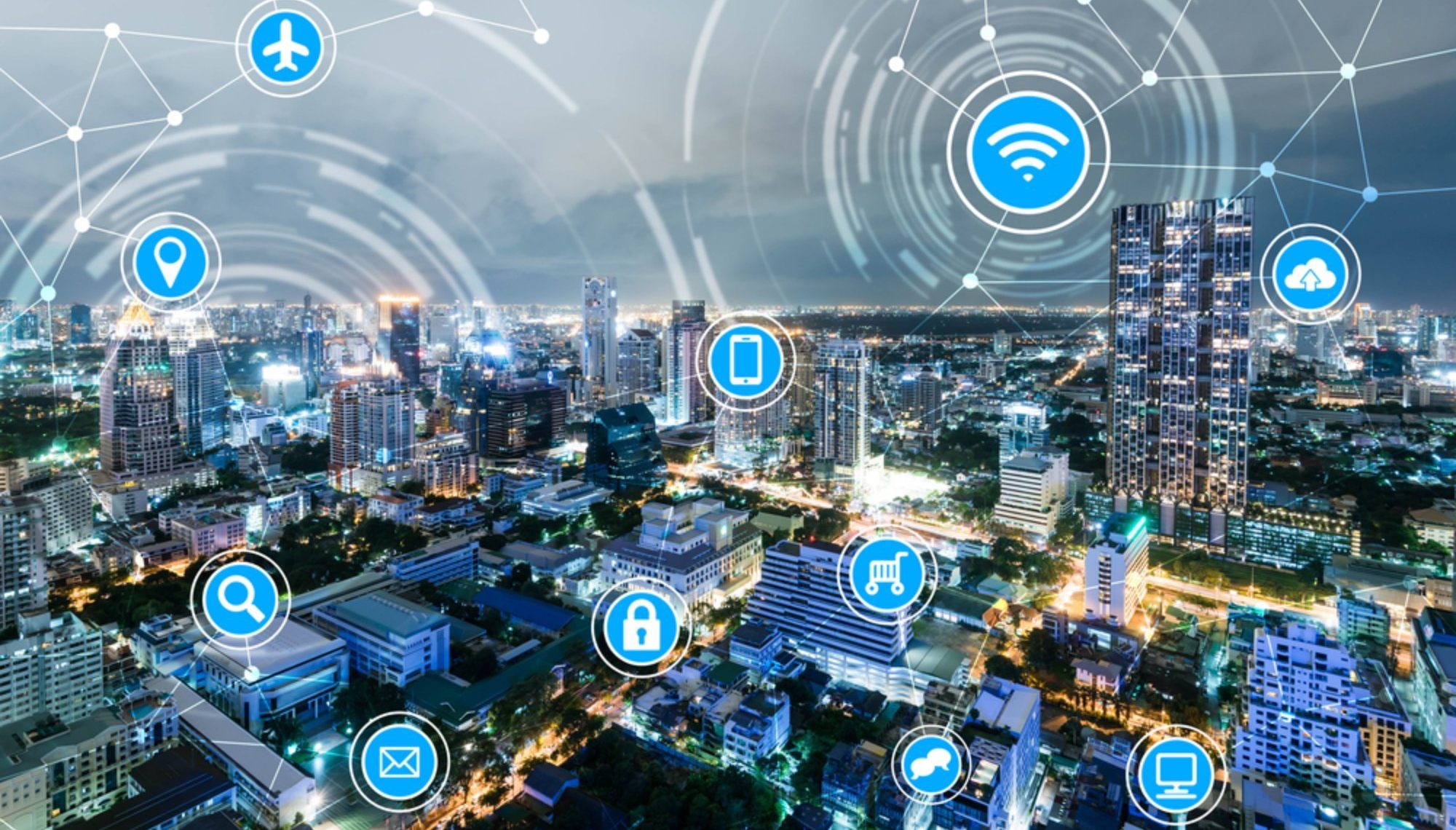
Information technology has radically transformed city management. The vast amount of data that city administrators can now collect and consult, leads to better decision-taking and optimized customer service. Cities can now be managed as professionally as enterprises. Externally too, digitization has a profound influence on how cities are developing. Service Providers that are specializing in working for local government, have a wealth of opportunities at their hands.
We are increasingly becoming urbanized: according to the United Nations, 75% of the world population will be living in cities by 2030. Existing cities are growing rapidly, and new cities are being created. Just look at the plans for New Cairo Capital in Egypt, where construction for 21 new residential districts that can house up to 5 million people will have finished by 2022. In other areas in the world too, new developments are being planned.
These new projects all contain crucial digital components. According to Merrill Lynch and Persistence Market Research, the total investment by Smart Cities will reach 1.6 trillion dollars in 2020, a number that will more than double by 2026. Over 700 billion dollars will be spent on Smart City infrastructure in 2020, and over 220 billion dollars on smart safety and security. And, of course, software will be a large part of any investment in items such as smart housing, smart energy infrastructure and smart mobility. Now, what part of that cake do you want? For Service Providers, I see five different ways they can profit from that boom in investment.
Offer specialized services
The most obvious point of entry is by selling specialized services to city governments. The list of ‘as-a-Service’-offerings imaginable is limitless: how about Surveillance-as-a-Service, for instance. The European market for video surveillance has grown by over 10% in the last few years and with increasing insecurity, there is no end to this growth. Or how about Building Management-as-a-Service? A third of buildings in the EU are over 50 years old. Building management will be a huge market to reduce CO2 emissions and improve energy efficiency. Other options: Data Lakes-as-a-Service, IoT-as-a-Service,… the sky is the limit. And let’s not forget cloud services: local authorities will not entrust their citizen data to any hyperscale cloud, only a local cloud will do. Service Providers with local datacenters are well positioned to cater to these needs: the sheer concept of sovereign cloud!
Become a trusted partner
Specialized services are one element, high-level advice is quite another. CIOs employed by local government face the same challenges as their peers in private companies: they need to think strategically while also keeping all the technology under control. Think along with the CIO, become their advisor, help them become successful,…. and you will win too. Even higher up the food chain, you can position yourself to assist in defining the overall strategy of a smart city. Dell EMC partners like, for instance, Accenture are quite busy right now educating city officials, and helping them set the course for their administration.
Work out proof of concepts
New developments like smart cities demand new concepts, new solutions. Even new technologies. This is a great testing ground for Service Providers too. It will prove very motivational for your developers and strategists to work on new software, new business ideas that need to be put into practice. Your organization is set to learn enormously, learnings that you can then apply in other industries that you are active in.
Gain fast access to data
It is a proven fact that information is the new oil. By working alongside local authorities, you will get your hands on vast amounts of it. All sorts of data, from citizen records and financial reports to info emanating from traffic lights and utilities. The Internet of Things (IoT) is one of the dominant technologies in Smart Cities. As Kevin Kelly describes in The Inevitable, artificial intelligence (AI) and machine learning are only peaking thanks to the availability of data, lots of it. Only when you have access to a vast array of input, machine learning can really prove its worth. If you are in the area of AI and machine learning, then local authorities are dying to work with you and share data with you, so that you can use it.
Work with startups and universities
Smart Cities is, in essence, an area with a lot of innovation, and this new vertical has attracted a large number of startups. Service Providers can work with these startups on projects and learn from them. Likewise, they can collaborate with universities: closely involved in local programs and housing some of the brightest thinkers on any subject matter. The effect for a Service Provider is double: you will gain new expertise, and new ways of working and innovating. At the same time, startups and universities offer great talent recruitment potential. Through their innate sense of adopting technology and entrepreneurial mindset, they can make you smart in different ways.
The final aim of smart cities is to improve the quality of life for everyone in the city, and improve social cohesion. Technology is not an end in itself here, but an elementary means to get to that goal. As Dell EMC’s CTO Patricia Florissi says, smart cities demand a technology-driven solution that is open, agile and software-defined in order to bring fast response to citizen’s needs while optimizing the utilization of available resources. As a trusted partner of Dell EMC, Service Providers are uniquely positioned to benefit from the Smart City movement.
Want to find out more about Smart Cities and Digital Transformation? Check out our publication on Connected Cities.
